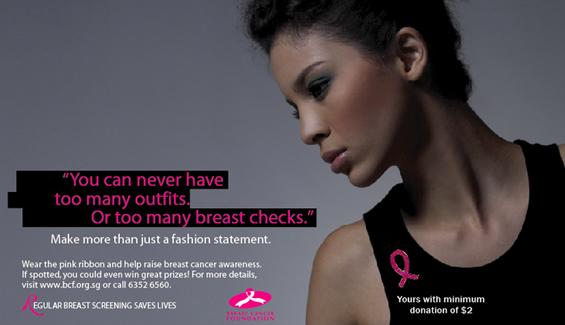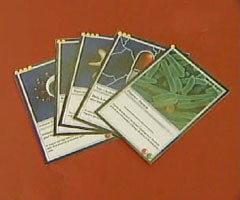Another Forum letter from Prof Lee:
Oct 8, 2005
Nepalese twins: A tale of misplaced sympathy
I AM writing in response to the report on the Nepalese twins ('Wrangle over Nepalese twins' hospital bill'; ST, Oct 6).
I had previously written to ST Forum stating that their technically successful operation was a medical mistake. But having made a mistake, the Singapore General Hospital (SGH) did not abandon them and, in fact, tried its best to help, given the circumstances.
When the twins returned to Kathmandu after their surgery in November 2001, SGH continued their follow-up treatment, jointly with local doctors. In 2002, the SGH doctors went there to plan their follow-up management in Nepal with the local neurosurgeon.
Between 2002 and this year, SGH's team of Dr Chumpon Chan (neurosurgeon), Dr Vincent Yeow (reconstructive plastic surgeon) and physiotherapists made a few trips, at SGH's own expense, to assess and plan further treatment.
The consensus with the local neurosurgeon, Dr Devkota, was that a shunt was required for Ganga, and this straightforward operation could be done safely in Kathmandu. SGH offered to fly its surgeons to assist in the operation, and to fund the cost of treatment in Kathmandu from the balance of the funds raised in Singapore. At a later stage, both twins would be brought to SGH for skull reconstruction, a complex procedure requiring a team of neurosurgeons and plastic surgeons. This was explained clearly and repeatedly to the family.
However, the mother and grandfather insisted on coming to Singapore. They refused to let the local surgeon treat the twins. The mother then approached Dr Keith Goh, who agreed to bring Ganga to Singapore for treatment at East Shore Hospital.
After my previous letter to ST Forum, I received a letter from Ms Angella Cheng, who is very close to the twins' family and was their guardian when they were in Singapore. She wrote, and I just confirmed again over the telephone with her, that the twins' parents' motive for coming to Singapore is to get more sympathy money, which they have actually got while in East Shore Hospital this visit.
The parents even approached the Gurkha contingent in Singapore again but were turned down this time because the contingent had already donated to the twins on the first occasion.
SGH was subsequently approached by East Shore Hospital for funding from the balance of the funds when the twins arrived here. In consultation with the Nepalese Consul-General here, Mr Swami (who is also a member of the trustees of the fund), SGH informed East Shore Hospital that it would reimburse it based on the cost if the twins had been treated at SGH.
When East Shore Hospital submitted its claim for reimbursement following their treatment, the trustees (with the Nepalese Consul-General present) went through the bill. Only a shunt operation was done for Ganga. SGH then reverted to East Shore Hospital with SGH's estimated bill size and reimbursed it accordingly.
As for claims of Botox and intensive physiotherapy for Jamuna, I have no confirmation as to whether it was indeed carried out, but, even if it was, for any improvement to be possible it has to be a long-term treatment that needs to be continued in Kathmandu.
Obviously, this short-term intensive and expensive therapy will have little permanent effect on her leg deformity or ability to walk and is not justified.
As a bystander and a Singaporean, I watch this saga unfold with sadness and disappointment. I feel very sorry for the twins who will never have a normal life - perhaps less sorry for Ganga, who is a vegetable with no awareness of her own suffering, and more so for Jamuna, who has enough comprehension to know what suffering is.
I am disappointed with my fellow Singaporeans' gullibility. Some of you may remember the Indonesian baby with grossly swollen head who landed on our shores not long after the technically successful separation of the Nepalese twins.
Public sympathy again produced enough funds for a palliative operation to be done. Last seen at age 2 1/2 years, the baby was severely disabled, mentally and physically.
Then there was the saga of the Yishun siblings who had an operation for deep-brain stimulation done in Taiwan at tremendous cost, again paid for by the Singapore public. They could have been treated in SGH or the National Neuroscience Institute at a fraction of the cost.
The operation was claimed in the press to be a miraculous success, and the siblings were shown walking with assistance. Now they are no longer able to walk, not even with assistance.
I cannot resist one last story which illustrates both the propensity of the press to sensationalise and the gullibility of Singaporeans.
When the story of Huang Na's murder hit the papers, many people donated money to the girl's mother, with the total sum enough to cover many subsidised patients' hospital bills or provide bursaries for many, many poor students.
But what good is that money to Huang Na who has died?
Assoc Prof Lee Wei Ling
Director and Senior Consultant
National Neuroscience Institute
(source)
Just some thoughts on the matter:
1. While doctors may not always know best (what's best often being subjective), we probably have more background knowledge on which to base a decision on. If the donors knew that the outcome for the interventions were likely to be poor, would they have channeled their moneys elsewhere?
2. You can go all the way up in the medical hierarchy and still be angry. And you have a right to be. Perhaps most (all?) doctors have a social conscience which makes them mad when they perceive a medico-social wrong.
3. I am reminded of the time I saw these two brothers with a hereditary, progressive form of muscular dystrophy. The elder one was in his mid-teens. He was wheelchair-bound, severly wasted, and his spine twisted because his muscles could not hold his back straight. He was being admitted for a chest infection which was a complication of his condition. His intellect was normal but he had difficulty speaking.
His younger brother was in his early teens and wheelchair bound too, but still able to sit upright and speak. He looked cheerful.
But deep down inside I wonder how he viewed the fate that would befall him too unfolding in his brother before his eyes.
I wonder how he felt towards his parents, who knew that the condition was hereditary but decided to have another child anyway.
Labels: letters, Prof Lee











